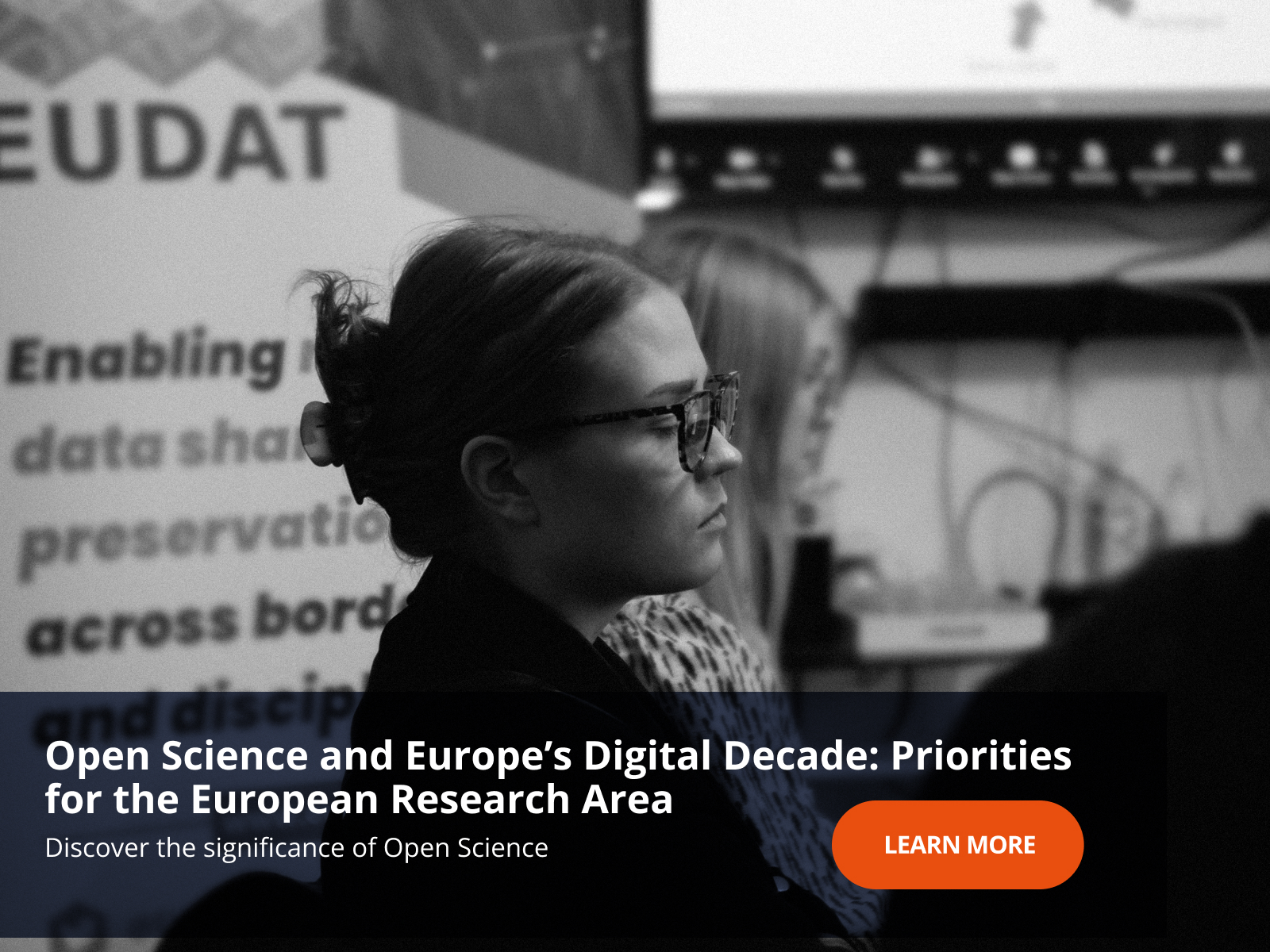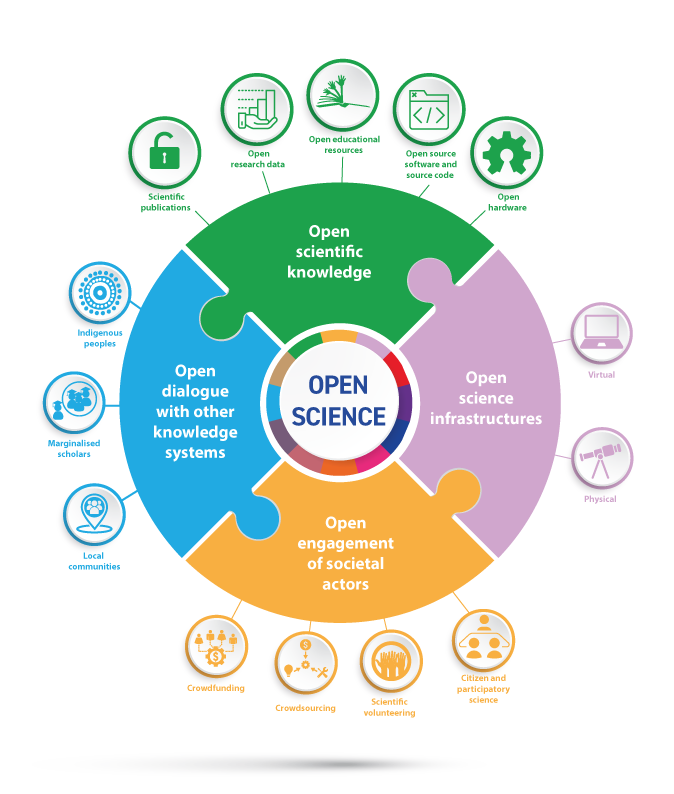
The European Commission is determined to make this Europe's digital decade.
But where does open science fit in the race for digital transformation capabilities?
In essence, open science lies upon transparent and accessible knowledge; through collaboration, all levels of society should have access to easily accessible and easily shared research. For European Research Area (ERA), open science policy enables and amplifies the European digital and research developments.
Striving towards openness of science: a brief overview of Open Science in Europe
Science is rooted in experimentation, so it’s not a surprise that open science always underlines the transformation and advancement of scientific practices. The difficulty was to come to an agreement on the term to signify the tradition of openness of science, and its values and practices. The European Commission firstly used the term “open science” in 2014, as a result of the public consultation on Science 2.0, Science in Transition.
In various forms, open science has been used to refer to the transformation to scientific practices, focusing on the openness of science. The European Commission first used the term in 2014, as a result of the public consultation on Science 2.0 Science in Transition. From the public consultation, which largely involved scientific organisations and research infrastructures, the majority agreed on the term of “open science” and “open scholarship”, reflecting the inclusion of the humanities and emphasising the form of open collaboration.

What are the current priorities for ERA?
We need to go beyond the traditional Open Access to research publication, and open the scholarly process of research, storage, and publication entirely.
Ensuring a FAIR and equitable transition to Open Science is emerging as a priority in its own right, driven by the ‘UNESCO Recommendation on Open Science’. Purposeful action should be taken to ensure all research communities can take part in this transition, while all segments of society should be able to reap its benefits.
The ERA is a unified research area open to the world, where scientific knowledge and technology are shared and stored seamlessly and freely.
Some of the action points for the 20 ERA Action Plan priorities for the period of 2022-2024, include:
- Enable Open Science, including through the European Open Science Cloud (EOSC). To learn more about EOSC, click here.
- Propose an EU copyright and data legislative framework for research.
- Reform the Assessment System for research, researchers and institutions.
- Strengthen international cooperation.
- Accelerate the green/digital transition of Europe's key industrial ecosystems.
If you are interested in learning more about the ERA's action points, check the OpenAIRE and the European Commission websites. To stay up to date to the latest news in open science, sign up to EUDAT's Newsletter!
